Myth: Cancer is a “fight” you have to “win”
“Many people think of cancer as a battle that can be won by the most determined and committed patient. Unfortunately, that is simply not the case. Even the patient who follows her oncologist’s instructions perfectly may succumb to her illness. The image of a prizefighter knocking out the enemy simply does not happen for many patients. Sometimes, a more realistic goal is to improve quality of life. Setting small goals for overall health can be important to monitor progress. Celebrating small achievements can be very meaningful.” —Ashley Sumrall, MD, section chief of neuro-oncology at the Levine Cancer Institute in Charlotte, North Carolina. To keep things in perspective, these are hopeful cancer statistics that everyone should know.
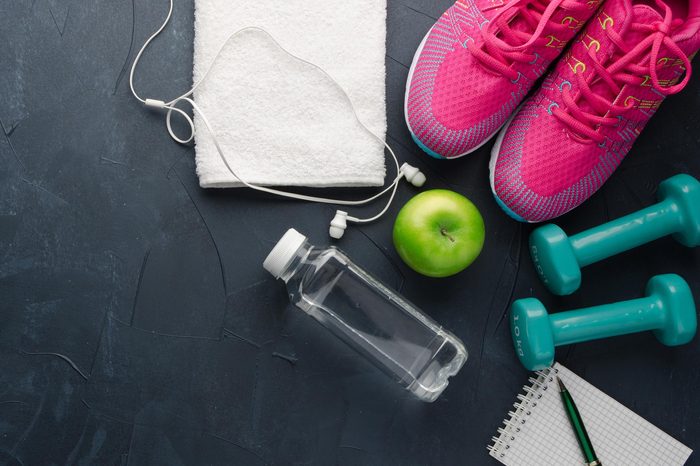
Myth: Cancer just happens, there’s nothing you can do to prevent it
“Up to 50 percent of all cancers can be prevented through healthy lifestyle choices such as exercise, diet, and avoidance of toxins. I recommend you exercise frequently, even if it is only for a short while each time, and try to keep a routine of being physically active. It’s also important to establish healthy eating habits by avoiding excess sugar and heavily processed foods and including lots of fruits and vegetables.” —Ted James, MD, a breast cancer surgeon at Beth Israel Deaconess Medical Center in Boston. To get a jump start on reducing your risk, try these 37 simple ways you can prevent cancer.
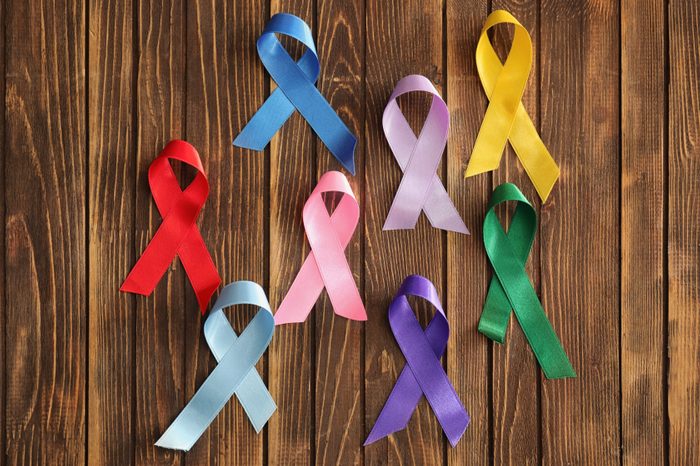
Myth: Cancer is one disease
“In reality there are hundreds of types of cancers. Each has a unique molecular signature and variable clinical expression. In my subspecialty of neuro-oncology, we have identified at least 120 subtypes of brain and spinal cord cancer. With an enemy this diverse, our diagnostic and therapeutic approaches must expand.” —Ashley Sumrall, MD
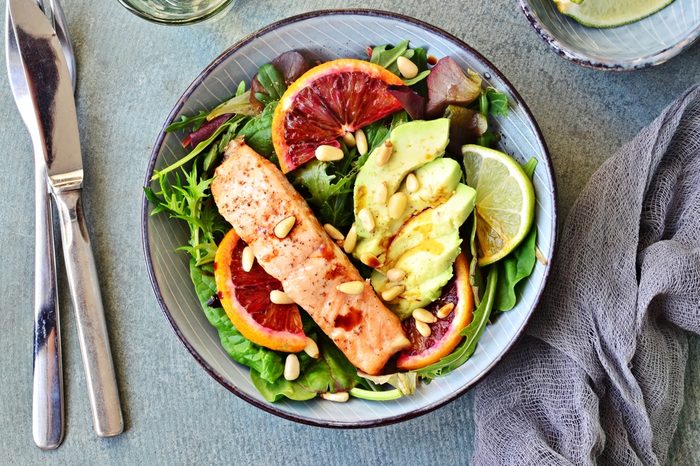
Myth: Superfoods can prevent or cure cancer
“People think that there’s a food or a type of food that can solve all your cancer problems and reduce your cancer risk but the evidence just isn’t there. What we see from an evidence perspective is that overall dietary pattern makes a difference. Now there certainly are foods that I think of as ‘super’ that are really healthy and packed with nutrients, like colorful fruits and vegetables, whole grains, and healthy protein sources like fish and beans. We should be eating a lot of them—just not with the idea that any one of those is going to prevent cancer.” —Colleen Doyle, RD. These are the 13 fall superfoods to add to your diet.
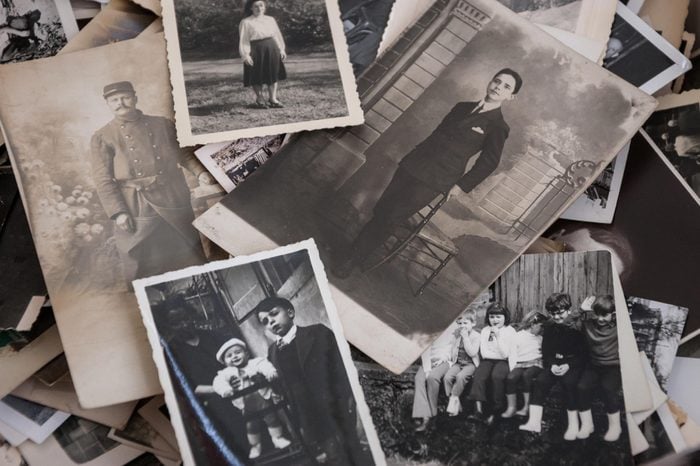
Myth: Cancer is hereditary; you can only get it if it runs in your family
“There are familial patterns of inheritance with many forms of cancer, yet the most common forms of cancer are often unrelated to genetics. More importantly, even if a cancer is genetic, it does not necessarily mean that you will express that cancer. The medical field still does not fully understand why certain patients will get a cancer while other family members with similar genetics and environmental exposures will not. The take-home message: All people should live their lives in the healthiest manner possible to avoid all disease, which should include your physical and mental health.” —David Poulad, MD, Chief of Neurological Surgery at Trinitas Regional Medical Center in Elizabeth, New Jersey.
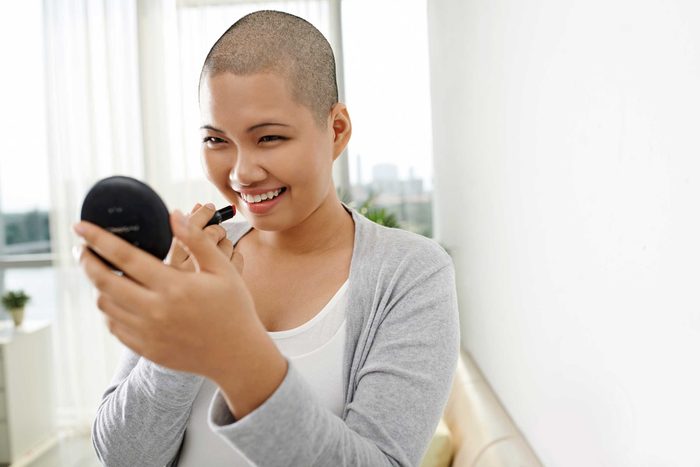
Myth: Cancer is a death sentence
“Many people think cancer is incurable despite all the money that has been invested in decades of research. But although cancer can be a devastating diagnosis, it is not hopeless. New research in immunotherapy has enabled us to give more patients hope about managing their disease and possible beating it altogether.” —David Poulad, MD
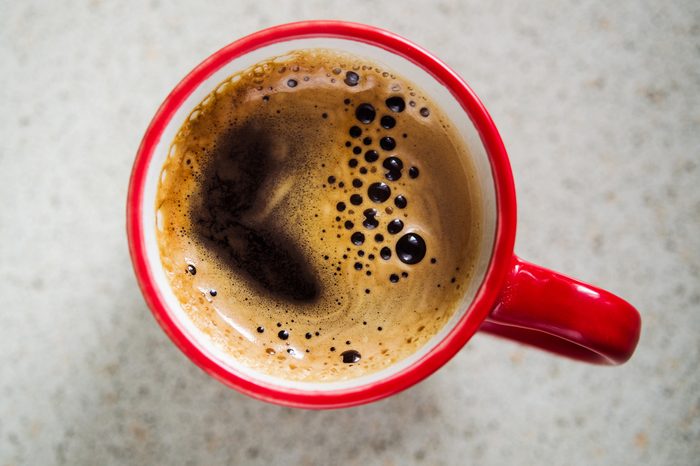
Myth: Drinking coffee or tea can reduce your cancer risk
“There’s been a lot of research about whether green tea and coffee can affect your cancer risk. I would say the jury is still out. We know the antioxidants in fruits and vegetables are protective against cancer; what we don’t really know is if those same antioxidants are in tea or coffee. I tell people if you like it then drink it but from a cancer perspective we don’t know enough to say ‘If you drink this it will reduce your cancer risk.'” Colleen Doyle, MS, RD. Is coffee a new miracle drug?
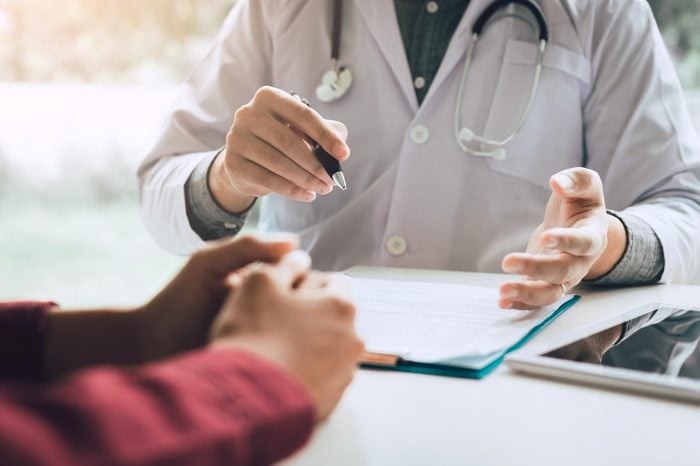
Myth: Your doctor doesn’t understand your fears about cancer
“I am a prevention expert who treats cancer patients and at the end of the day, we as experts, are no different from the average Joe. We worry about getting cancer and preventing it; we struggle with weight control, getting enough sleep, work-life balance, and prioritizing exercise. You can tell us anything.” —Peter Shields, MD, deputy director and cancer prevention researcher at The Ohio State University Comprehensive Cancer Center in Columbus. In addition to talking to your doctor, ease your mind by trying these 15 things doctors do to prevent cancer.
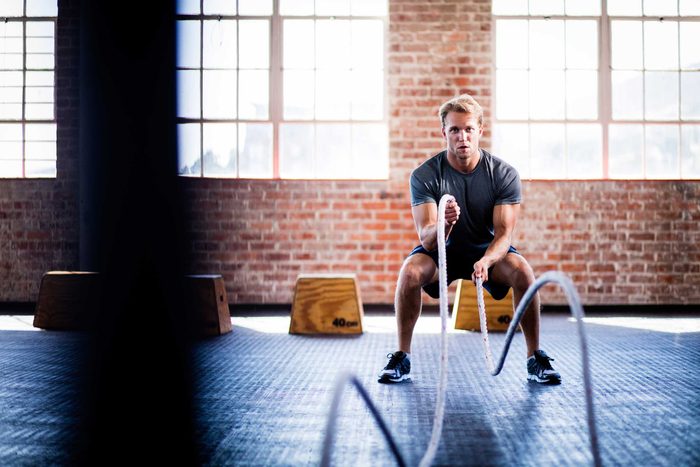
Myth: If you have cancer you should just rest and take it easy
“An intervention like exercise has almost universally positive side effects versus other treatments that can have deleterious side effects. Exercise is a type of therapy that benefits multiple systems in the body, and may permanently alter the environment within the tumor. ” —Brad Behnke, PhD, an associate professor of exercise physiology at Kansas State University – College of Human Ecology in Manhattan, Kansas.
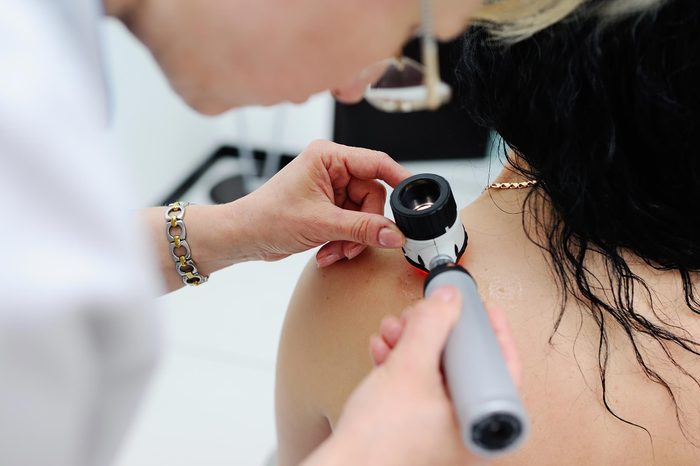
Myth: Skin cancer is only skin deep
“The truth is that people who have had a skin cancer are at higher risk (53% higher) for developing internal cancers, such as lung cancer, stomach cancer, etc. compared to someone who has never had a skin cancer.”—Vivian Bucay, MD, a dermatologist in San Antonio, Texas. Here’s how to check for skin cancer.
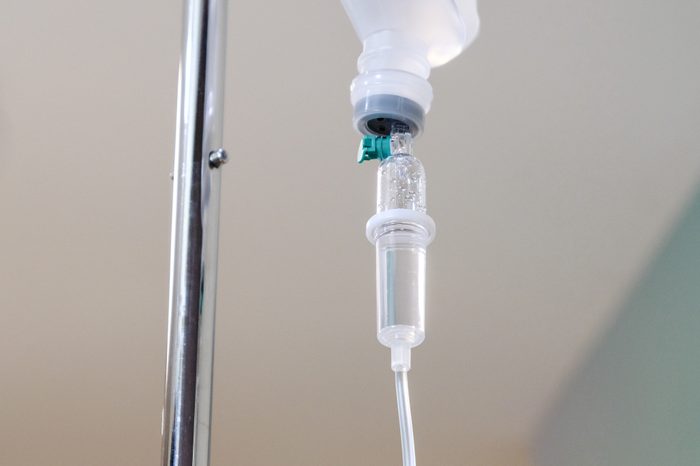
Myth: Chemotherapy is debilitating
“Reality: some are and most are not. It depends on the chemotherapy recipe for the specific cancer. Therefore most chemotherapy is given as an outpatient and patients go home after treatment.”— Chandler H Park, MD, Clinical Professor University of Louisville School of Medicine in Kentucky. Want to know the healthiest diet for cancer patients? These are the nine best foods to eat during chemotherapy.
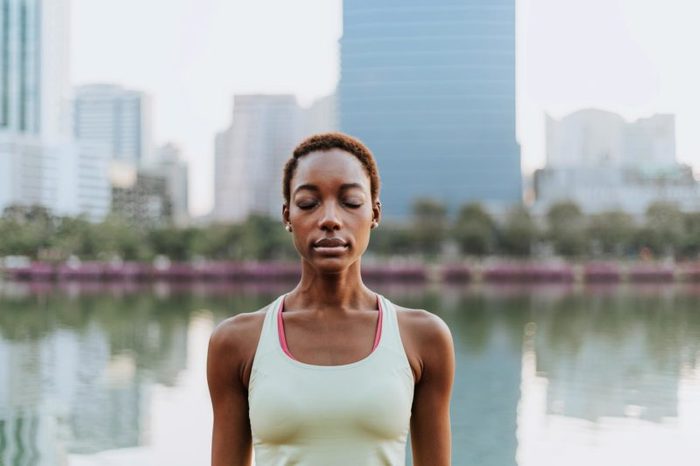
Myth: Darker skin patients can’t get skin cancer and don’t have to wear sunscreen
“I’ve diagnosed countless patients in the past with skin cancers in all skin types.” —Dhaval G. Bhanusali, MD, a New York City dermatologist. Make sure to wear sunscreen regularly; here’s what to look for in a sunscreen.
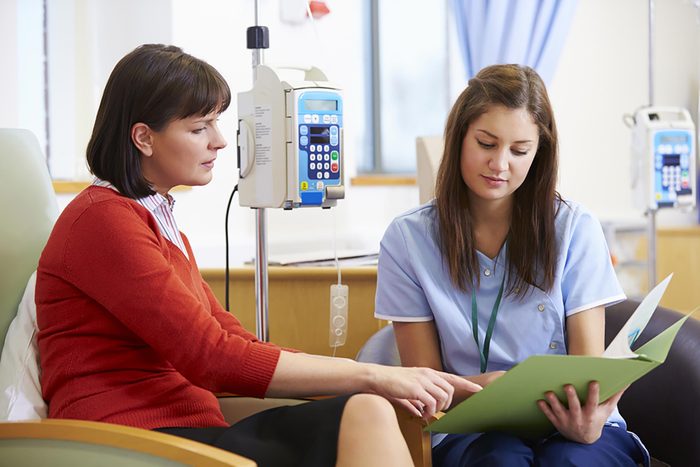
Myth: Clinical trials to treat cancer are for patients who have run out of options
“In fact, a clinical trial is always an option to possibly improve a patient’s journey with her/his disease. By participating, patients may have access to new research options before they are widely available. Clinical trials enable each patient to play an active role in his or her healthcare.”—Victoria Manax Rutson, MD, Chief Medical Officer at the Pancreatic Cancer Action Network in Los Angeles.
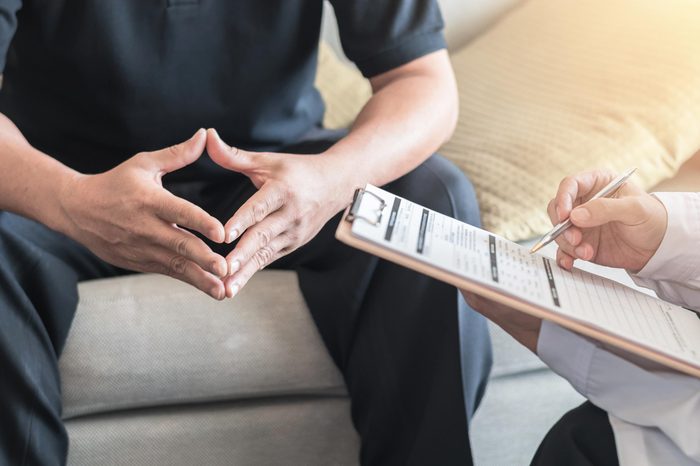
Myth: “Young” men don’t get prostate cancer
“While it is true that prostate cancer risk and incidence increase as a man ages, men shouldn’t be deceived into believing that it is an “old man’s disease.” In fact, more than 70,000 men diagnosed with prostate cancer each year are diagnosed earlier than 65 years old.”—S. Adam Ramin, MD, Urologist and Medical Director of Urology Cancer Specialists in Los Angeles. Not sure what to look for? These are signs of cancer that men are likely to ignore.
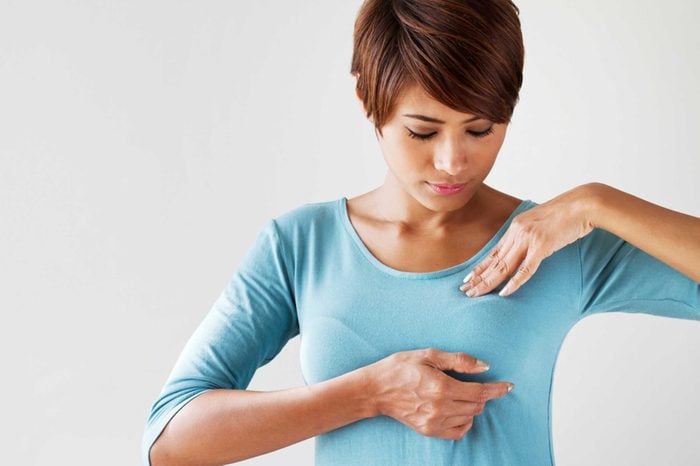
Myth: Finding a lump in your breast means you definitely have breast cancer
“Lumps and any other changes in the breasts should be reported to a doctor, but most turn out to be benign.”—Brian O’Hea, MD, Chief of Breast and Oncologic Surgery at Stony Brook Medicine and Director of the Carol M. Baldwin Breast Cancer Center in Stonybrook, New York. Learn what to do if you find a breast lump.
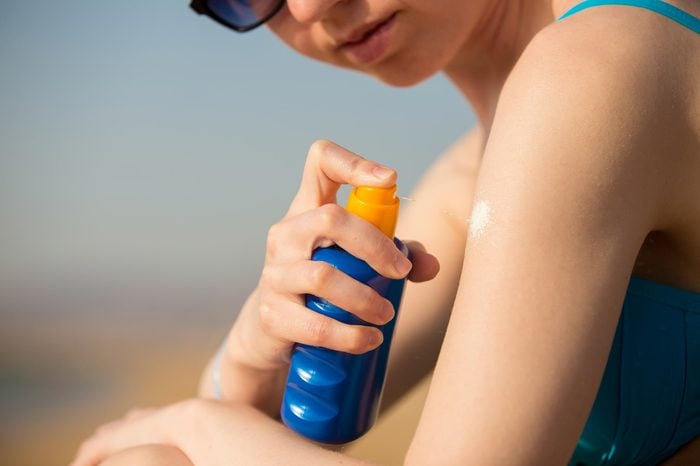
Myth: Sunscreen causes skin cancer
“I don’t know how this big lie got started, but the fact is that studies have shown that daily sunscreen use reduces the risk of skin cancer.”—Vivian Bucay, MD. To protect yourself, don’t fall for these other 15 skin cancer myths you need to stop believing.
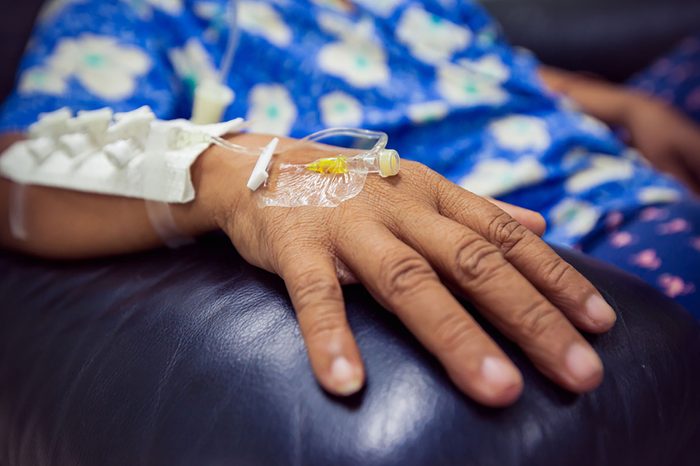
Myth: Chemotherapy is the same for all cancers
“Many patients say, ‘I know someone that received chemo.’ That’s like saying, ‘I know someone that received antibiotics.’ There are so many different antibiotics and chemotherapy. Each medication is different.”—Chandler H Park, MD.
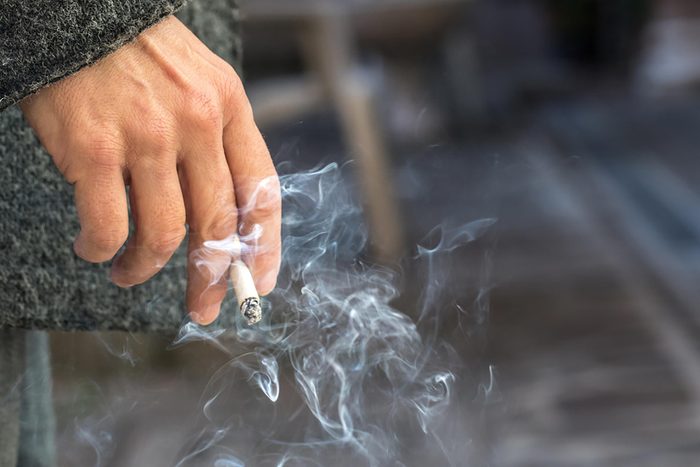
Myth: People don’t die from cancer complications anymore
“Movies and TV shows write in the lead characters as surviving against all odds. But the fact is so much of surviving cancer depends on following your doctor’s guidelines, and, please, stop smoking. You won’t believe the number of people refusing to stop smoking thinking it won’t hurt them since they’re seeking treatment. Yes, it will.”—Darius Russin, MD, Section Chief of Geriatrics & Extended Care at the Central Texas VA Medical Center in Temple, Texas.
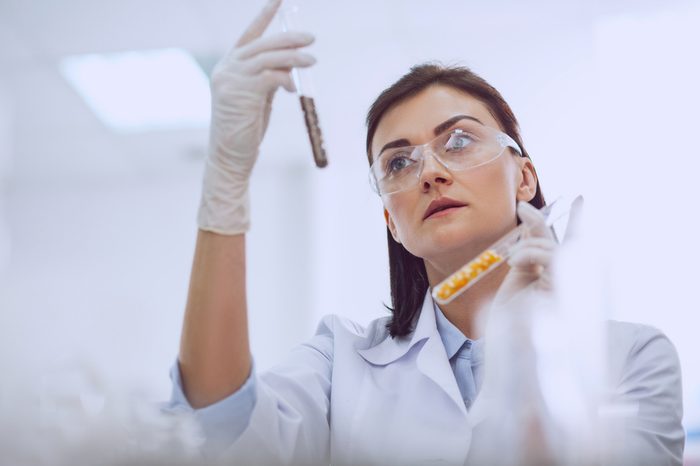
Myth: No progress has been made in fighting cancer
“This simply isn’t true. There’s still a long way to go. There are some cancers where progress has been much slower—such as lung, brain, pancreatic and esophageal cancers. And when you lose someone you love to cancer, it can feel as though no progress has been made at all. Significant progress has been made, and many, including our team at the Medical College of Wisconsin, are performing cutting-edge research to continue the fight. We’re working hard to make sure nobody loses his or her life prematurely to the disease.”—Sailaja Kamaraju, MD, MS, Assistant Professor of Medicine for the Medical College of Wisconsin in New Berlin, Wisconsin. These recent groundbreaking advancements in cancer research will reassure you.
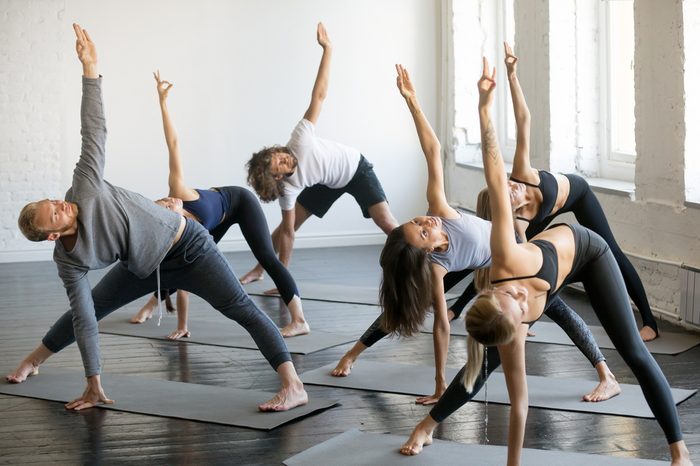
Myth: There is nothing you can do to lower your risk of developing breast cancer
“The fact is that 90 percent of breast cancers are largely due to lifestyle and environmental factors. To keep your risk as low as it can be, maintain a healthy weight, exercise regularly, and limit the amount of alcohol you drink.”—Marisa Weiss, MD, Chief Medical Officer, President and Founder of Breastcancer.org in Ardmore, Pennsylvania. Interested in more ways to reduce your risk? Making these six simple changes can help prevent breast cancer.
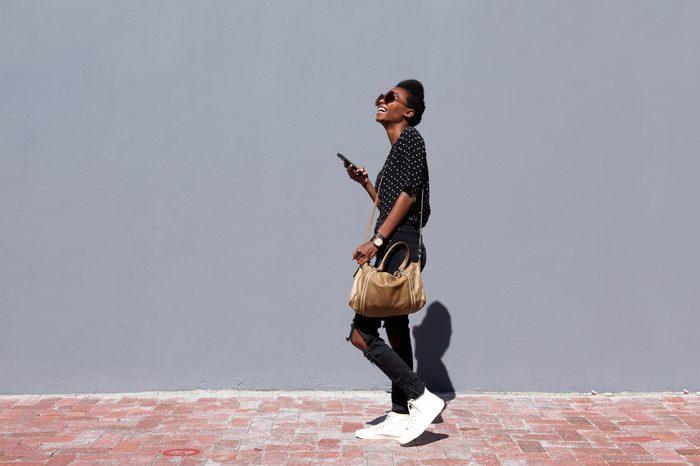
Myth: Only people with fair skin are at risk for skin cancer
“False. Anyone, regardless of skin color, can develop skin cancer. Everyone needs to practice good sun protection habits starting at a young age.”—Vivian Bucay, MD, FAAD
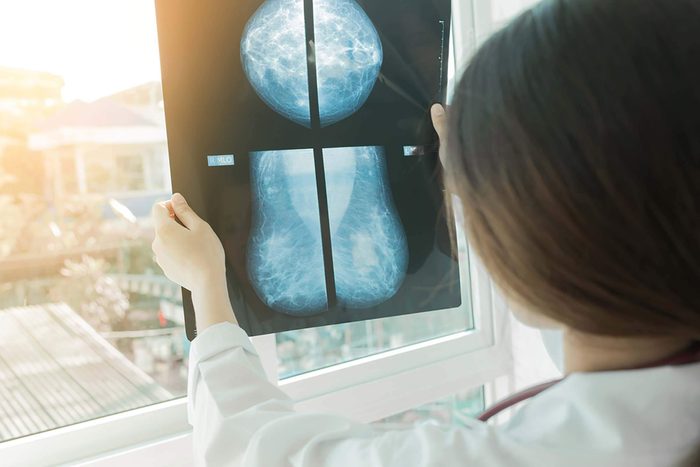
Myth: Mammograms catch all breast cancer
“Up to 10% of breast cancer is missed on a mammogram. Thus self-breast exam and physician breast exam is very important.”—Chandler H Park, MD.
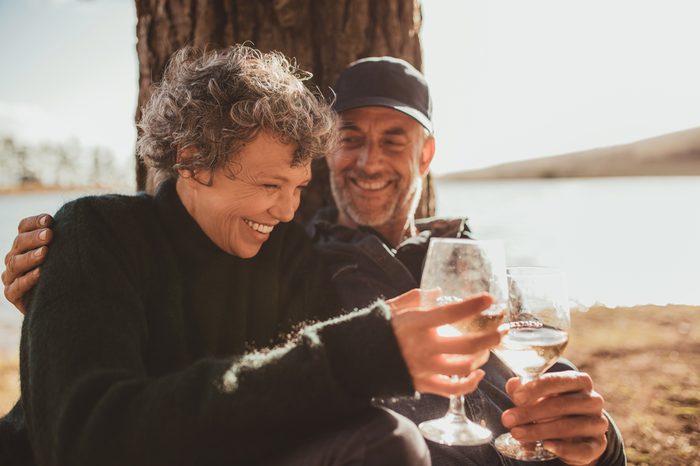
Myth: Prostate cancer treatment always causes impotence
“I have found that this is one of the reasons that men initially shy away from prostate cancer treatment once they have been diagnosed. But it simply isn’t true. Today’s state-of-the-art technology, especially when it comes to robotics, can offer tissue and nerve-sparing benefits that don’t leave men permanently impotent after surgery. What’s more, this technology can be completely curative, meaning that it removes all of the cancer. The most important factor in the success of this technology is the surgeon who is using it. He or she must be highly knowledgeable about the technology and extremely skilled and experienced in using it. This gives men the best chances of successful treatment without long-lasting side effects.”—S. Adam Ramin, MD. Want to reduce your risk? Quit these surprising habits that could lead to prostate cancer.
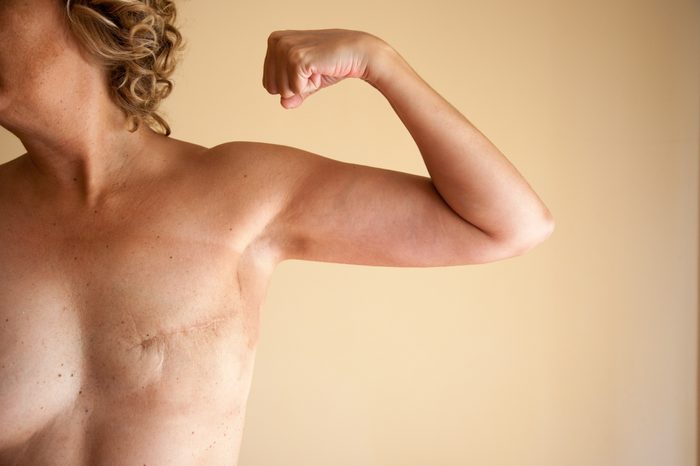
Myth: Mastectomies are more effective than lumpectomies
“The chances of cancer coming back on the chest are lower with a mastectomy, however in terms of survival, an appropriately formed lumpectomy is an equivalent option.”—Brian O’Hea, MD. Learn the questions you should ask after an abnormal mammogram.
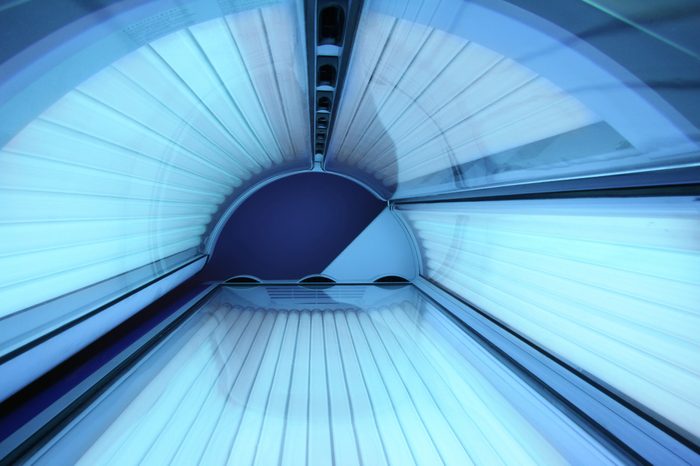
Myth: I’m less likely to develop skin cancer if I use a tanning bed versus lying in the sun
“Make no mistake about, it, studies have proven that tanning bed use increases the risk of skin cancer dramatically.”—Vivian Bucay, MD, FAAD
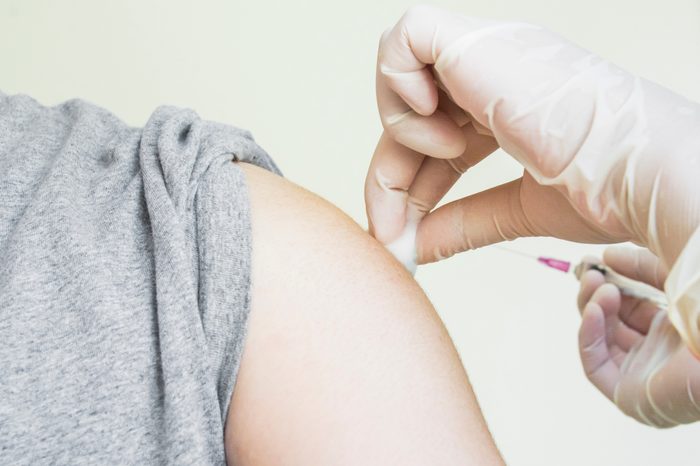
Myth: Childhood immunizations (and even the newborn vitamin K shot) can cause cancer
“Absolutely no credible evidence for this classic myth, and yet the anti-immunization forces continue to push this myth on trusting young parents.” —James Fahner, MD, a pediatric hematologist and oncologist at Helen DeVos Children’s Hospital in Grand Rapids, Michigan. To make sure you’ve got the correct information, learn about 29 other things you think cause cancer but don’t.
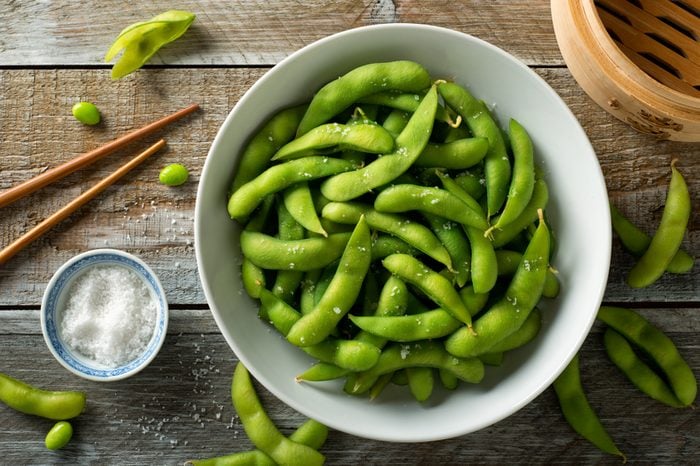
Myth: If you have breast cancer you should avoid soy product
“Soy is often feared because it is a photo (plant) estrogen. There is no definitive data suggesting that natural soy product (miso, edamame, etc.) as part of a healthy diet increases cancer risk. To the contrary, there is some evidence that soy may decrease risk of breast cancer but this needs to be better evaluated.”—Marleen I. Meyers, MD, Director of Perlmutter Cancer Center Survivorship Program at NYU Langone in New York City. On the other hand, these are 13 foods you really should never eat if you want to prevent cancer.
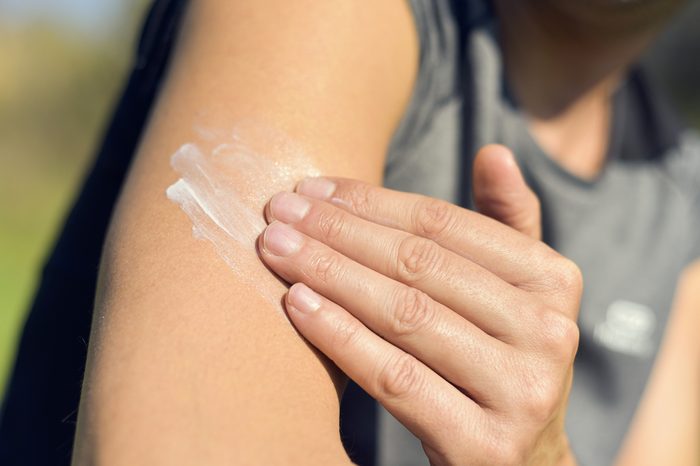
Myth: One application of sunscreen is enough to protect my skin from skin cancer
Sunscreen is an over the counter product and “requires reapplication to maintain its effectiveness.”—Vivian Bucay, MD, FAAD
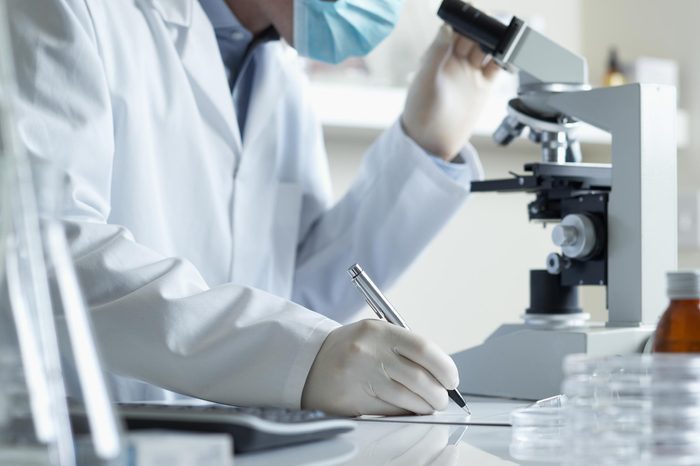
Myth: Scientists have the cure for cancer, but healthcare is hiding it to get rich from treatments
“A mean-spirited and hurtful lie. Any responsible member of an oncology care team dedicates their professional lives to providing compassionate care to patients with cancer, and they work hard to find new cures every day.” – James Fahner, MD.
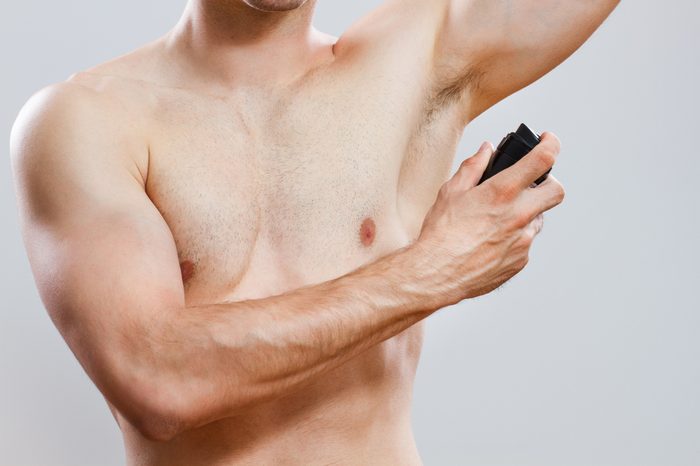
Myth: Antiperspirants cause breast cancer
“People inaccurately believe that if you can’t sweat, your toxins build up and may potentially lead to a tumor, but there’s no evidence to suggest that antiperspirants can cause cancer.”—Brian O’Hea, MD. Here are reasons you should switch to natural deodorant.
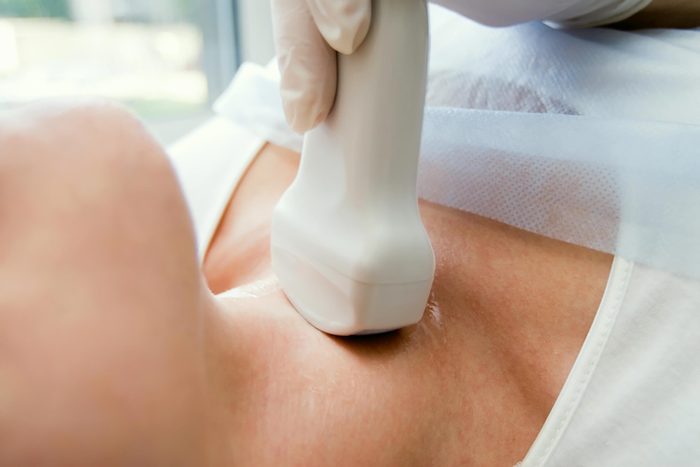
Myth: If I don’t smoke or drink I won’t get head or neck cancer
“It is correct that the risk of head and neck cancer increases exponentially in smokers and drinkers but there are other risk factors that can cause a person to develop head and neck cancers. These can include age, genetics and even infection by human papillomavirus.”—Reena Gupta, MD, an ear, nose and throat physician and director of the Division of Voice and Laryngology at the Osborne Head and Neck Institute in Los Angeles.

Myth: After age 18, it’s too late to start a sun protection regimen to prevent skin cancer
“Actually, it’s never too late to start good habits in sun protection, and it is possible to undo existing sun damage with skincare and treatments.”—Vivian Bucay, MD, FAAD. Make sure you know these surprising skin cancer risks you’ve been ignoring.
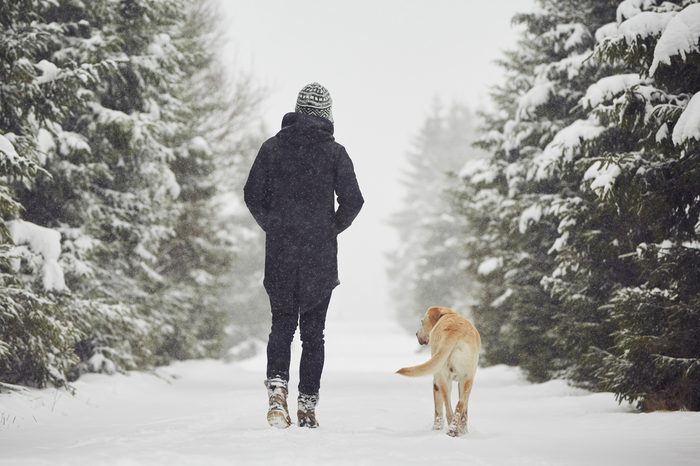
Myth: I don’t need to think about developing skin cancer during the winter
“Not true! Sun damage can happen at any time of the year, and because of the earth’s tilt in the winter, there is a higher proportion of deeper penetrating UVA rays getting through.”—Vivian Bucay, MD, FAAD. Looking for more expert opinions? Learn 51 more things dermatologists need you to know about skin cancer.
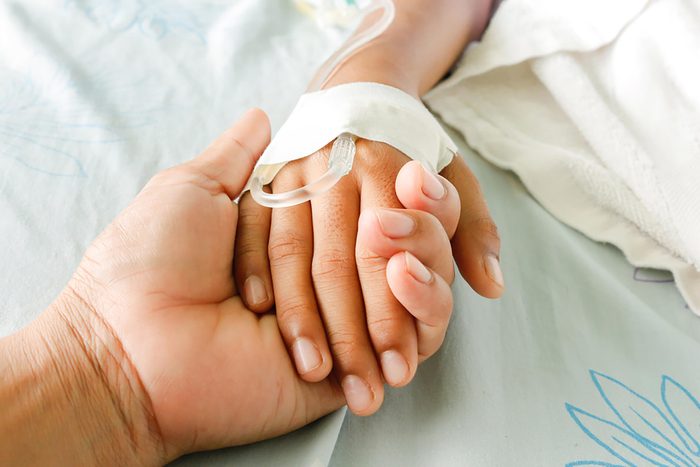
Myth: When it comes to cancer, children are just like “little adults”
“Biologically, children’s cancers (most often undifferentiated embryonic tumors) are distinctly different than adult cancers (most often epithelial cancers or carcinomas), and have dramatically different responses to therapy, and significantly different outcomes, generally much higher cure rates.”—James Fahner, MD.
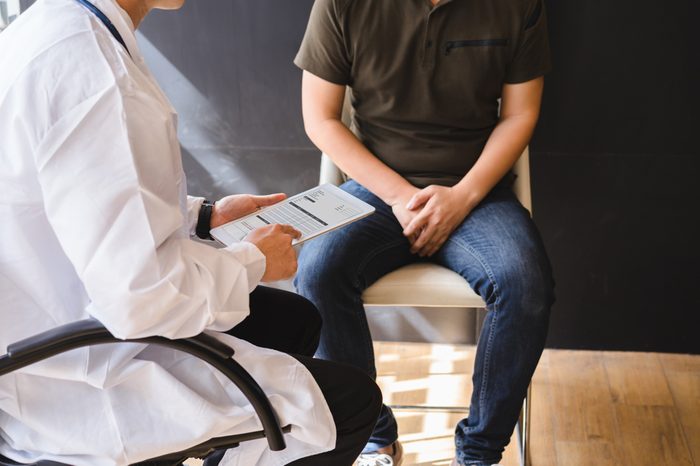
Myth: You must have symptoms to have prostate cancer
“Actually, prostate cancer is among the least symptomatic cancers known to the medical community. What that means is that most men who have it don’t know it. Many of the patients I’ve treated had their prostate tumors discovered during a routine examination for another condition or from a lab report of blood work at their annual physical. In addition, some of the most common symptoms associated with prostate cancer can be mistaken for something else. But if a man in your life is having pain or difficulty with urination, pain or difficulty with erection or ejaculation and stiffness in the lower back, hips or upper thighs, these are signs that absolutely need to be evaluated by an urologist.”—S. Adam Ramin, MD. Here are 10 more facts about prostate cancer your doctor didn’t tell you.
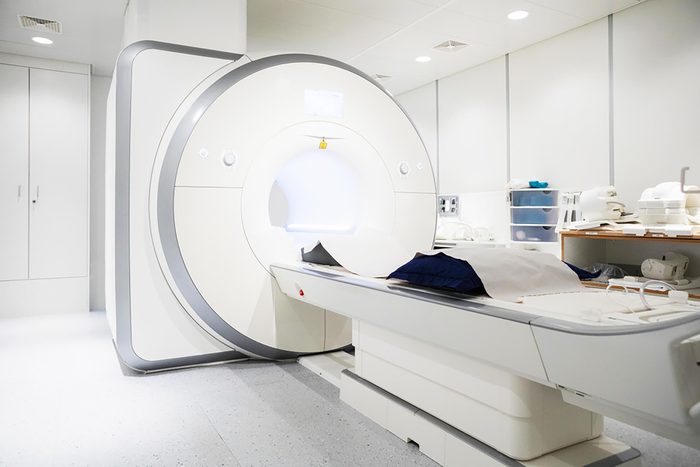
Myth: Radiation is dangerous
“I hear this frequently. While radiation, in general, is dangerous, radiation delivered in the medical setting is safer than ever. Robotic technology, image guidance, sophisticated software, motion management systems are a few of the major technological developments in the last decade that has made radiation to kill cancer so much safer.”—Editha Krueger, MD, Radiation Oncologist at Radiology Associates of Appleton, ThedaCare, and BellinHealth in Appleton, Wisconsin.
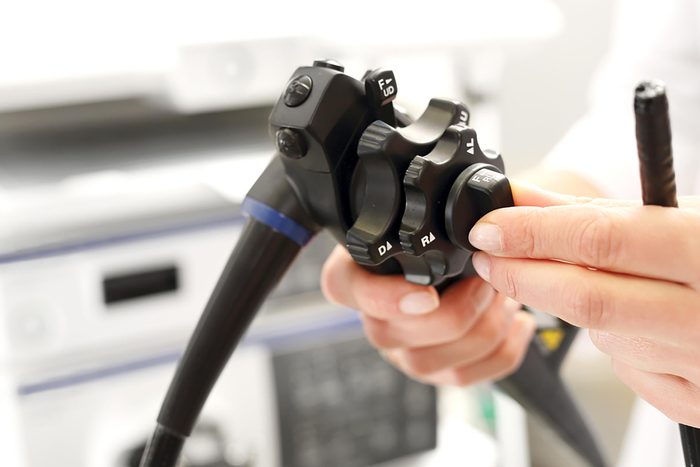
Myth: Colonoscopies cause cancer
“This is not true and something a patient actually told me today. She called me wanting to discuss her upcoming colonoscopy with concerns because she read a Facebook article that said the colonoscopies actually CAUSE cancer. This is not true, and it is concerning that this is something floating around on the Internet.” —Jennifer Caudle, DO, a family Physician and Assistant Professor at Rowan School of Osteopathic Medicine in Sewell, New Jersey.
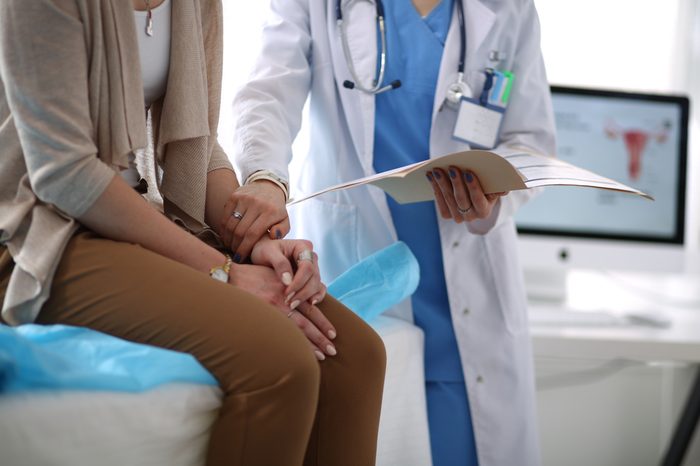
Myth: Colon cancer only affects men
“It is important for people to know that men and women are at equal risk for colon cancer. In the United States, colorectal cancer is the third most diagnosed cancer in both men and women, and the second leading cause of death from a cancer in both sexes combined. However, screening can help to prevent many cases of colorectal cancer by identifying polyps that have the potential to become cancerous. Screening also helps us to identify colorectal cancer early, when it is easier to treat.” —Greg FitzHarris, MD, a colorectal surgeon at Sentara Surgery Specialists in Norfolk, Virginia.
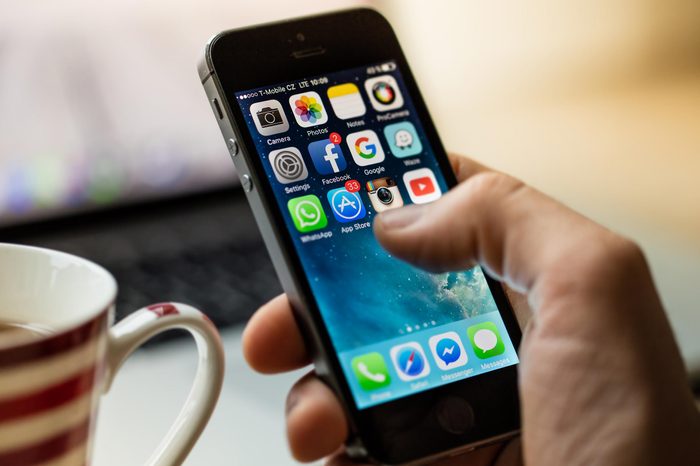
Myth: Cell phones can cause cancer
“To date, there is no conclusive evidence that supports a direct correlation between cell phone use and brain tumors. Cell phones basically work by using RF (radiofrequency waves). This is a form of very low electromagnetic energy that is unlikely to cause cancer since these are essentially a form of non-ionizing radiation.”—David Poulad, MD.
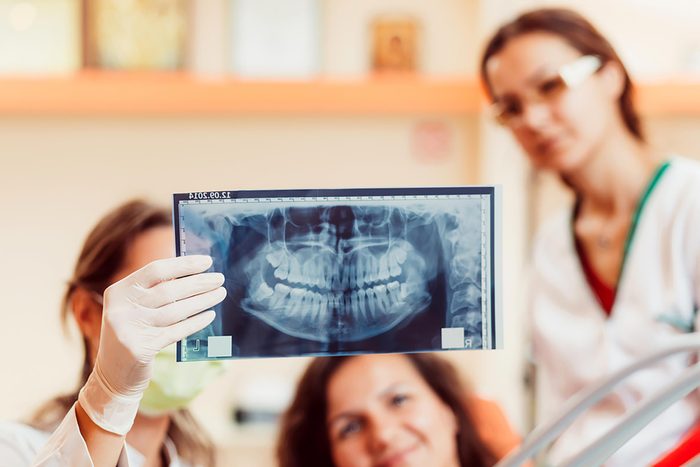
Myth: X-rays (or CT scans) cause cancer
“CT scans are done as clinically indicated only; we do not routinely perform CT’s. While X-rays and other medical imaging does expose one to radiation, a risk factor for cancer, the amount of radiation from a single scan or X-ray is relatively small, and for many cancer screening procedures like mammography, the radiation dose is less than the average annual dose of background radiation that we all are exposed to in our day to day environments. When patients are misinformed about increased risk from CT scans, some fraction of them will refuse the CT scan. What they gain by refusing the CT scan is nothing, since the change in cancer risk is within the range of normal variation from year to year. However, refusing the scan will cause the patient to lose critical diagnostic information that is potentially lifesaving.”—Sailaja Kamaraju, MD. On the flip side, these are 37 ways to prevent cancer, according to science.
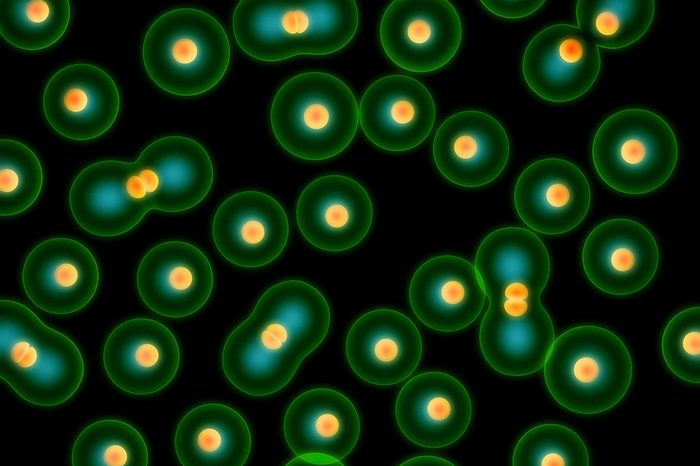
Myth: BRCA genes only increase risk of breast cancer
“BRCA mutations are also common in ovarian, prostate and pancreatic cancer.”—Heather Hampel, Associate Director, Division of Human Genetics at The Ohio State University Comprehensive Cancer Center in Columbus.
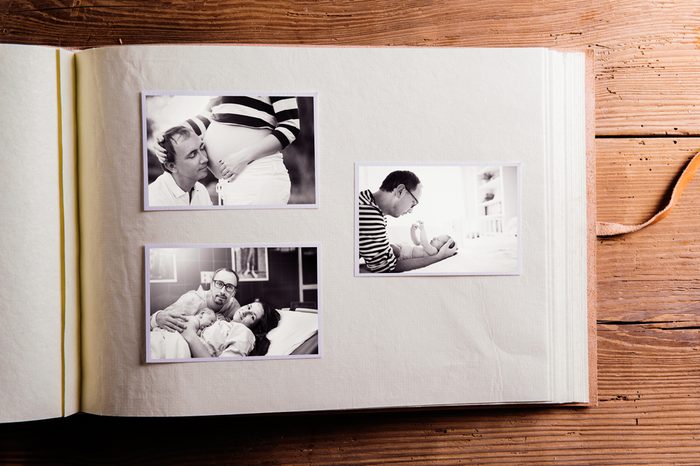
Myth: You Can’t inherit breast cancer genes from your father
“Do not disregard family history on your dad’s side of the family. You absolutely can inherit BRCA mutations from your dad.” —Heather Hampel
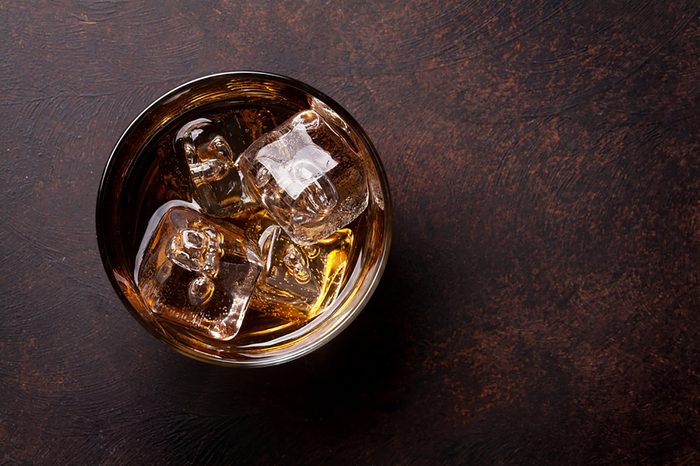
Myth: Alcohol consumption does not affect your breast cancer risk
“Alcohol is a moderate risk factor for breast cancer. 5 or more drinks per week increases risk of breast cancer by 1.5 x the baseline population.” —Sarah P. Cate, MD, an Assistant Professor of Surgery at the Icahn School of Medicine at Mount Sinai and Director of Special Surveillance and Breast Program at Mount Sinai Chelsea Downtown in New York City. Check out these 50 everyday habits that reduce the risk of breast cancer.
